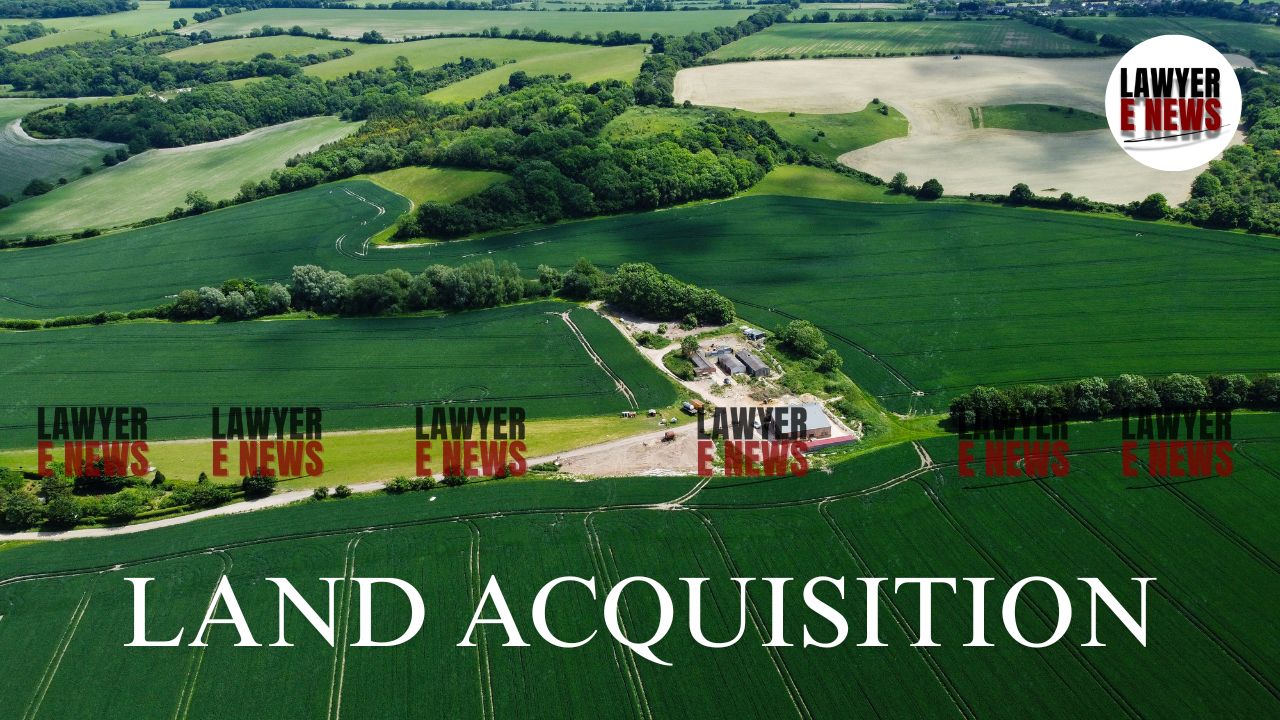-
by Admin
16 February 2026 1:47 PM



Mere Existence of Factory Without CLU Is Not Enough to Claim Release Under Acquisition Policy — In a significant ruling a three-judge bench of the Supreme Court comprising Justices B.R. Gavai, Prashant Kumar Mishra, and K.V. Viswanathan upheld the rejection of the appellant's plea seeking release of acquired land. The Court held that the absence of a valid Change of Land Use (CLU) permission disentitles the appellant from claiming parity with similarly situated landowners who obtained land release. However, invoking Article 142, the Court granted compensation to the appellant under the beneficial provisions of the Right to Fair Compensation and Transparency in Land Acquisition, Rehabilitation and Resettlement Act, 2013, despite denying the release.
The appellant, Kishore Chhabra, purchased land with a factory situated at Sultanpur, Sonipat, Haryana, in 1986. Subsequently, the State of Haryana issued a Section 4 Notification under the Land Acquisition Act, 1894 on November 9, 1992, for development of the Sonipat area, which included the appellant’s land. The appellant raised objections under Section 5-A and challenged the acquisition through multiple writ petitions. The appellant primarily sought release of his land under the State’s release policies, arguing that similar lands were released and that he was discriminated against.
The appellant also claimed that his factory, operational since 1970, should qualify for exemption under the policies of 1991 and 2007, which provided for exclusion of existing factories from acquisition.
The crux of the appellant's argument was discrimination, contending that similarly situated factories had been released, whereas his was not. It was submitted that:
"In respect of the same Notification of the same village, the State has released the land... the appellant has been singled out in a discriminatory manner."
Additionally, the appellant invoked equity, highlighting that his factory had been continuously operating since 1970, well before the acquisition process.
The State, represented by the Additional Solicitor General Mr. K.M. Nataraj, argued that: "The appellant lacked the mandatory CLU, which is a statutory prerequisite for considering release of land under the policy."
It was further contended that physical possession had already been taken and substantial development had been carried out, including roads, commercial plots, and green belts, making release impermissible.
The Supreme Court emphatically held: "For establishing a factory or any other commercial development being valid, a CLU is a prerequisite, in the absence of which, running a factory on the said land cannot be validated so as to include his case within the sweep of the policy dated 26.06.1991 or 26.10.2007"【Para 7】.
Since the appellant could not produce a CLU despite repeated opportunities, the Court rejected the plea for release.
Rejecting the plea of discrimination, the Court distinguished the appellant’s case from others by noting: "The said Devraj Dewan submitted his application for CLU... and was eventually granted before Section 4 Notification; the appellant cannot claim discrimination vis-à-vis Devraj Dewan"【Para 10】.
Similarly, other released lands either belonged to different acquisition proceedings or had valid CLU permissions.
The Court found no procedural bar in the form of delay or res judicata since: "The appellant has been pursuing his case for release at least from the year 2007-08 onwards... Thus, the appellant's prayer for release of land cannot be thrown out on principles of res judicata"【Para 12】.
However, it ultimately rejected the release on merits.
Despite dismissing the release claim, the Court invoked its extraordinary powers under Article 142, considering the peculiar facts, including the long possession and existence of the factory: "Since the appellant claims to be in continuous physical possession of the land wherein a factory is in operation... we deem it appropriate to direct that the compensation payable to the appellant should be calculated under the Right to Fair Compensation and Transparency in Land Acquisition, Rehabilitation and Resettlement Act, 2013"【Para 13】.
The Court, however, clarified that this relief is restricted to the facts of the case and shall not be treated as a precedent.
The appeal was partially allowed, granting compensation under the 2013 Act but denying the release of land.
The Court summed up: "For the above-stated reasons, we are not inclined to accept the appellant’s prayer for release of land on the ground of discrimination. However... compensation should be calculated under the Right to Fair Compensation and Transparency in Land Acquisition, Rehabilitation and Resettlement Act, 2013"【Para 13】.
Date of Decision: April 1, 2025
